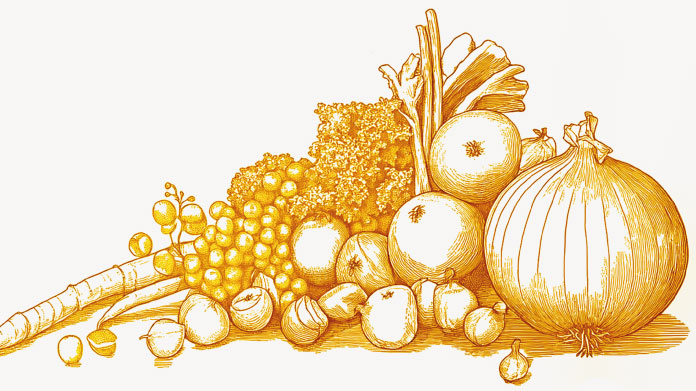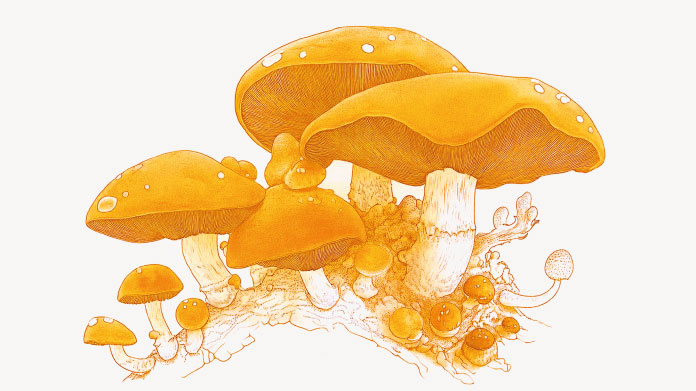
Beware received wisdom!
You’ve no doubt heard it said that ‘the cold kills germs’. But this is hardly likely given the epidemics of ‘flu and gastroenteritis we see over the cold winter months. Indeed, this notion has been refuted by numerous studies: a great many infectious agents are perfectly able to withstand the cold. Some are even more resistant during winter. A dramatic fall in temperature may make germs slightly more passive for a time but it won’t kill them. Easily reactivated, they go on to infect the body, which at a constant temperature of 37°C, provides the ideal conditions for the rapid growth of infectious agents. One of the best ways of killing germs and preventing illness is aromatherapy, ie, the use of anti-infectious essential oils .
Conditions that encourage the spread of germs
The return of the cold weather does not kill germs and may even encourage the spread of infectious agents. One reason is that we tend to retreat indoors as soon as the temperature drops. Thus the cold brings people together in close confinement, so increasing the risk of transmission. Another contributing factor is the heating in our homes and workplaces which dries out the nose and prevents nasal mucus from blocking infectious agents. What’s more, these living spaces are often less well-ventilated in winter which also encourages the accumulation of germs. To avoid falling ill in the coming months, it’s therefore a good idea to wash your hands frequently, turn the heating down and think about ventilating your living/work space.
A weakened immune system
It has been repeatedly shown that the return of the cold weather impairs immune system function. The body’s defence cells become less mobile which allows germs to move in and start to spread. A fall in energy linked to the change in season can also weaken our defences. That’s why we’re often advised to take vitamin supplements to prevent winter infections. Multivitamins are popular as in a single capsule, they provide a concentrate of vitamins, minerals, antioxidants and phytonutrients that support all the body’s functions. Scientists have also identified powerful immune-stimulant agents that boost the body’s defences and protect against illness. Discover, for example, our colostrum supplement and its benefits for fighting winter infections.
Risk of infection exacerbated by pollution
Studies increasingly show that air pollution raises the risk of infections. And winter is particularly conducive to peaks in pollution, both inside and out. Heating our living spaces can increase fine particle emissions. Low temperatures and an absence of windy weather prevents the dispersal of pollutants in the atmosphere, leading to regulatory levels being exceeded. For individual and collective protection against winter infections, we therefore all need to ‘do our bit’ to lower our own fine particle emissions. Antioxidants can also help fight the effects of atmospheric pollution. Found in certain winter fruits and vegetables, these natural protective agents are also available in the form of a powerful complex: AntiOxidant Synergy. In a single capsule, this dietary supplement combines a selection of the best natural antioxidants: curcumin from turmeric, polyphenols from grapes, EGCG from green tea …
66 Days
Fiables y Recomendables
Como siempre estáis siempre ofreciendo alternativas naturales a los diversos problemas de Salud con un buen despliegue de información y una variada gama de productos. Y os felicito por el servicio de entrega que hacéis ahora que supera con creces el de antes.
Mariano Navarro Sanchez
66 Days
produits innovants
produits innovants, avec une composition claire
véronique de sainte marie
67 Days
Ravie et Très Satisfaite de Ma Commande…
Ravie et Très Satisfaite de Ma Commande et de Mes Commandes Très Bons Produits
Brigitte D.
67 Days
Produits fiables
Produits fiables
jacqueline
67 Days
Tout est OK 👌
Tout est OK 👌
RICHARD Bertrand
67 Days
Bestelle das Produkt seit Jahren immer…
Bestelle das Produkt seit Jahren immer wieder ist echt super, Preis Leistung ist ok könnte noch ein bisschen billiger sein aber sonst ok
SONJA Hofbauer
67 Days
Commentaire
Excellent services
DIDDY Mohamed
67 Days
Livraison rapide
Livraison rapide
devouass
67 Days
Schnelle Lieferung
Schnelle Lieferung. Gute Begleitung der Lieferung
SCHARWAECHTER Hans Juergen
67 Days
Efficace rapidement
J’ai commencé à prendre les facteurs de croissance osseuse alors que j’étais en plein accès douloureux d’ostéoporose. Mon état s’est stabilisé en quelques jours puis les douleurs ont diminué régulièrement. Je pense continuer ce remède pendant quelques mois puis 1 gélule par jour et une pause etc..
Françoise Delfour
68 Days
Rapidité de livraison avec prestataire…
Rapidité de livraison avec prestataire fiable ! Toujours impeccable.
Virginie
68 Days
Siempre buenas experiencias y cada vez…
Siempre buenas experiencias y cada vez más rápidos los envíos
Elsje Fokkelman
68 Days
Livraison rapide et en parfait état
Livraison rapide et en parfait état. Jamais d'erreur.
WUILLEMIN Sylvie
68 Days
J'ai trouvé rapidement sur le site le…
J'ai trouvé rapidement sur le site le complément qui m'était nécessaire et la livraison a été très rapide. Merci.
Client
68 Days
Je recommande ces produits
Facilité pour passer les commandes. Délais de livraison tenus. Produits de qualité. Je suis cliente depuis longtemps et très satisfaite.
Alexandre PUBERT



